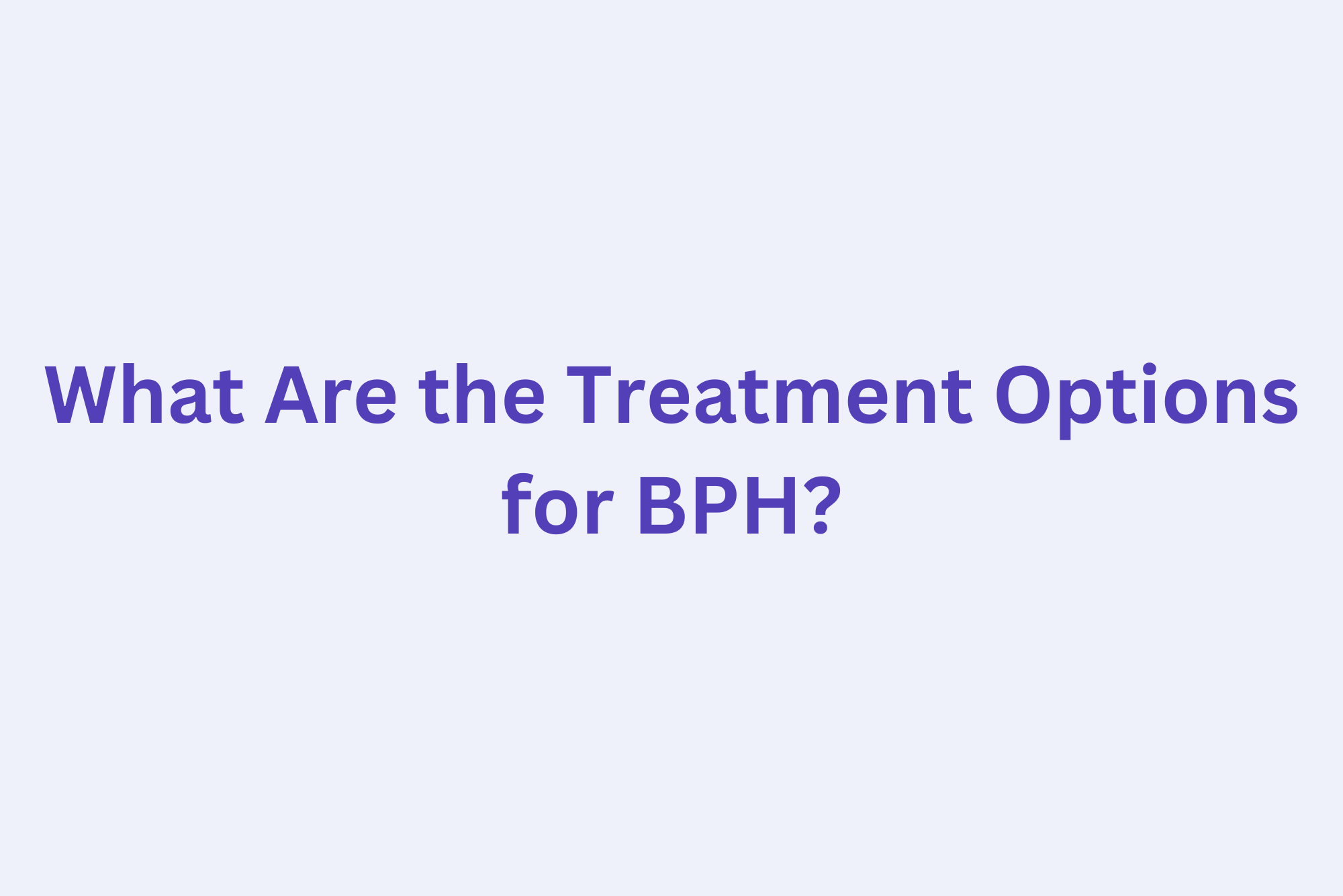Benign prostatic hyperplasia (BPH) is a common condition that affects men as they age, leading to an enlarged prostate. While BPH is not cancerous, it can cause uncomfortable urinary symptoms such as frequent urination, weak urine flow, and difficulty emptying the bladder. Fortunately, various treatment options are available to manage the condition effectively. Understanding these treatments can help men make informed decisions about their prostate health.
Understanding BPH and Its Impact
BPH occurs when the prostate gland enlarges, putting pressure on the urethra and bladder. This leads to urinary difficulties, which can impact daily activities and overall quality of life. While the exact cause of BPH is not fully understood, factors such as hormonal changes, aging, and genetic predisposition play a role. Seeking medical advice at the early stages of BPH disease can prevent complications and improve treatment outcomes.
Lifestyle Modifications and Home Remedies
For mild cases of BPH, simple lifestyle changes can help manage symptoms effectively. These include:
- Dietary Adjustments: Consuming a diet rich in fruits, vegetables, and whole grains while reducing caffeine and alcohol intake can improve urinary function.
- Regular Exercise: Maintaining a healthy weight and engaging in physical activities can reduce the severity of symptoms.
- Bladder Training: Practicing scheduled urination and avoiding fluid intake before bedtime can minimize nighttime disruptions.
- Avoiding Certain Medications: Some over-the-counter decongestants and antihistamines can worsen BPH symptoms.
Medications for BPH Management
When lifestyle changes are not enough, doctors may prescribe medications to relieve symptoms and slow prostate growth. Common medications include:
- Alpha Blockers: These relax the muscles in the prostate and bladder, improving urine flow and reducing symptoms.
- 5-Alpha Reductase Inhibitors: These medications shrink the prostate by blocking the production of a hormone that contributes to prostate growth.
- Combination Therapy: Some patients benefit from a combination of alpha-blockers and 5-alpha reductase inhibitors for better symptom relief.
- Tadalafil (Cialis): Originally used for erectile dysfunction, this medication has been found to improve urinary symptoms in men with BPH.
Minimally Invasive Procedures
For men who do not respond well to medications or experience severe symptoms, minimally invasive treatments offer effective alternatives. These procedures are performed on an outpatient basis and require minimal recovery time.
- Transurethral Microwave Therapy (TUMT): This procedure uses microwave energy to shrink prostate tissue, reducing urinary obstruction.
- Transurethral Needle Ablation (TUNA): Radiofrequency energy destroys excess prostate tissue to ease urinary symptoms.
- Prostatic Urethral Lift (UroLift): Small implants hold the enlarged prostate tissue away from the urethra, improving urine flow.
- Water Vapor Therapy (Rezum): This method uses steam to shrink the prostate, relieving symptoms over time.
Surgical Treatment Options
In cases where other treatments fail, surgical intervention may be necessary. Surgery provides long-term relief from BPH symptoms by removing or reducing excess prostate tissue.
- Transurethral Resection of the Prostate (TURP): The most common surgical procedure, TURP removes prostate tissue using an electrical loop.
- Laser Therapy: High-energy laser treatments, such as GreenLight laser therapy, vaporize prostate tissue with minimal bleeding.
- Simple Prostatectomy: Recommended for men with significantly enlarged prostates, this procedure removes part of the prostate through an incision.
The Role of Professional Consultation
It is essential to consult a healthcare provider before choosing a treatment option. A thorough evaluation, including a prostate-specific antigen (PSA) test and imaging studies, can help determine the most suitable approach. Men experiencing persistent urinary difficulties should seek expert advice on BPH benign prostatic hyperplasia to explore the best treatment options available.
Choosing the Right Treatment for You
The choice of BPH treatment depends on factors such as symptom severity, overall health, and personal preferences. Discussing the risks and benefits of each option with a healthcare provider ensures a personalized approach to managing the condition.
For more health-related insights and expert articles, visit BinaryUS. Stay informed with the latest updates on medical advancements and wellness tips to improve overall health.




